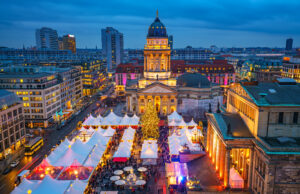
Nashville is located in the state of Tennesee and has a lot of culture to offer as well as great sights and interesting destinations. So if you’re planning a trip to Nashville (Tennesee), you’ve come to the right place!
Here you can find different housings and hotels around Nashville (Tennesee)
Just type in your destination and get many different suggestions.
Vacation in Nashville (Tennesee)
Nashville, situated on the Cumberland River in the heart of the scenic Tennessee country, is the state capital and one of the largest cities in the southeastern United States. The city is famous for its music, food and southern hospitality, making it a popular tourist destination.
There is a lot to see and do in Nashville. Music lovers can enjoy the many live music venues, including the historic Grand Ole Opry, the Country Music Hall of Fame and Museum, and the Ryman Auditorium. For those interested in the arts, the city offers the Frist Center for the Visual Arts and the Nashville Symphony. History buffs can explore the Tennessee State Capitol, the Hermitage (home of President Andrew Jackson), and Belle Meade Plantation.
Nature lovers can enjoy the numerous parks and green spaces in Nashville, including Centennial Park, Shelby Bottoms Greenway and Nature Center, and Warner Parks. Sports fans can catch a Nashville Predators hockey game or a Tennessee Titans football game.
There are many hotels and restaurants to choose from in Nashville, as well as a variety of shopping options. The best time to visit Nashville is in the spring or fall when the weather is mild.
Sights in Nashville (Tennesee)
Nashville, the capital of Tennessee, is situated in the northcentral part of the state. It lies on the Cumberland River in the Nashville Basin and is renowned as a centre of the music industry, earning the nickname “Music City”. In recent years, however, Nashville has become a more diverse and cosmopolitan city, with a flourishing tourism, healthcare and business sector.
The city’s origins date back to the late 18th century, when it was founded as a frontier fort. Today, visitors to Nashville can learn about its history at the Tennessee State Museum and the Country Music Hall of Fame and Museum. Other popular tourist attractions include the Grand Ole Opry, the Ryman Auditorium and theissan Stadium.
For outdoor enthusiasts, Nashville offers an array of recreational activities, from fishing and hiking in the Great Smoky Mountains to boating and swimming in the many lakes and rivers in the area. The city also has an excellent selection of golf courses.
If you’re looking for a taste of the local culture, be sure to check out the city’s numerous music venues, which offer everything from country and bluegrass to rock and roll. You can also catch a live show at the historic Ryman Auditorium or the Grand Ole Opry. For a more lowkey evening, take in a show at one of Nashville’s many theatre companies.
No matter what your interests are, you’re sure to find something to love in Nashville.
History of Nashville (Tennesee)
Nashville was first settled in 1779 by James Robertson and a small group of families from North Carolina. The area they chose was a stopping point on the Cumberland River for Tennessee’s boatmen, and they named it Nashville after Francis Nash, a Revolutionary War hero. Fort Nashborough, as the settlement was first known, became the capital of Tennessee in 1796. It was here that Andrew Jackson, who would later become the seventh president of the United States, made his mark as a general during the War of 1812.
Tennessee’s statehood in 1796 brought an influx of new settlers to Nashville. The city grew quickly, fueled by the river trade and by its position as a crossroads for eastwest and northsouth travel. Cotton became an important crop in the area, and by the 1850s Nashville had become one of the largest cotton markets in the United States. The city’s population continued to grow throughout the Civil War, despite the Union army’s occupation of Nashville in 1862.
After the war, Nashville was Reconstruction’s “most loyal” city in the South, according to historian Paul Bergeron. The city prospered in the late 19th century, due in part to the construction of several major railroad lines through Nashville. Its economy diversified with the arrival of various manufacturing companies. Music also became an important part of the city’s identity, as Nashville became a center for country music and the home of numerous music publishing companies.
The 20th century saw continued growth for Nashville. The city was expanded through a series of urban renewal projects in the 1950s and 1960s. The construction of interstate highways made Nashville even more accessible, and the city’s population swelled to over half a million residents by the end of the century. Today, Nashville is known as “Music City” and is home to a vibrant music scene that includes country, rock, folk, and blues. The city is also home to a number of historical sites, such as the Hermitage, the home of Andrew Jackson, and Fort Negley, one of the largest Union forts built during the Civil War.
Other vacation destinations in the United States:














